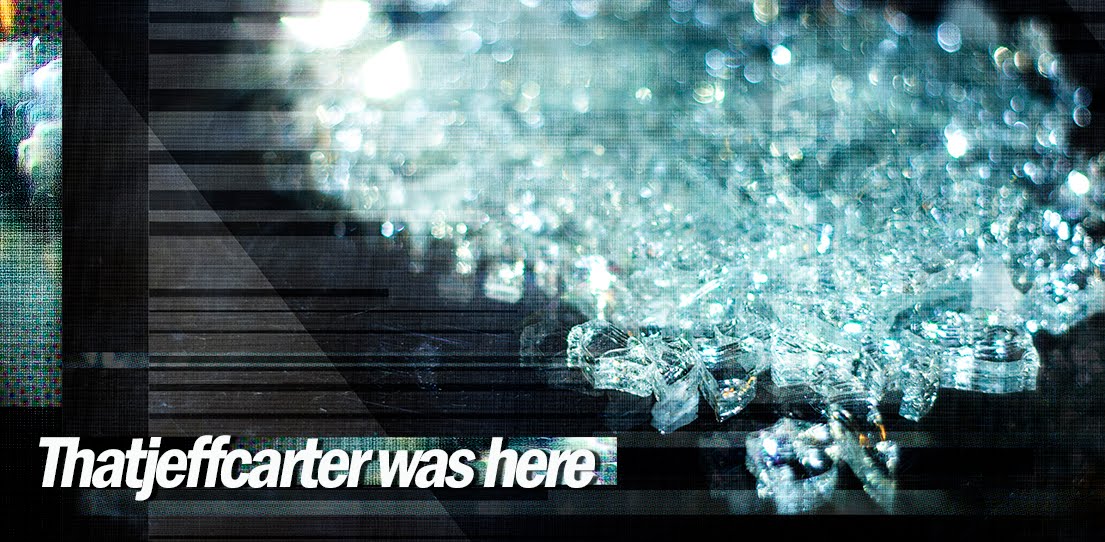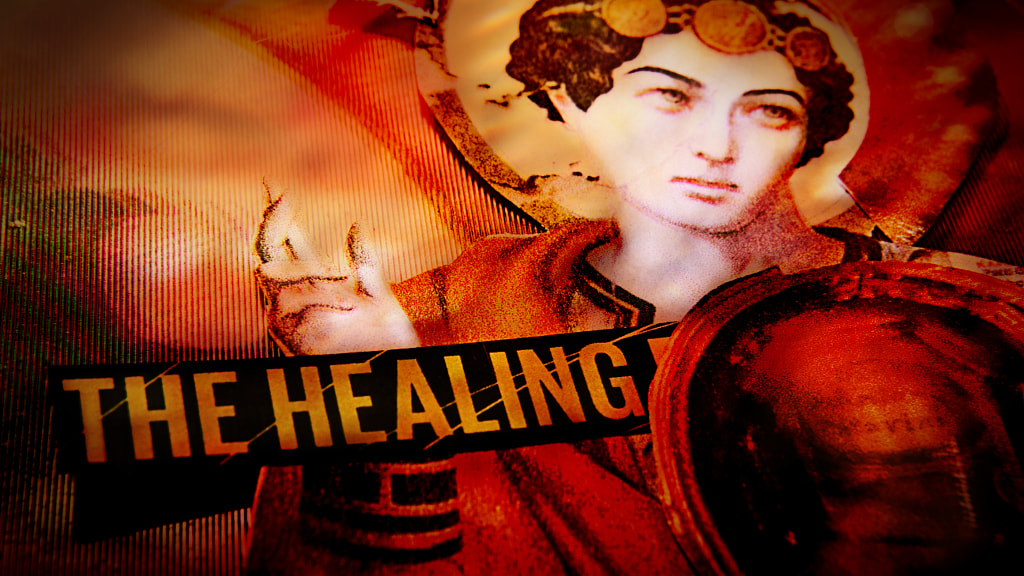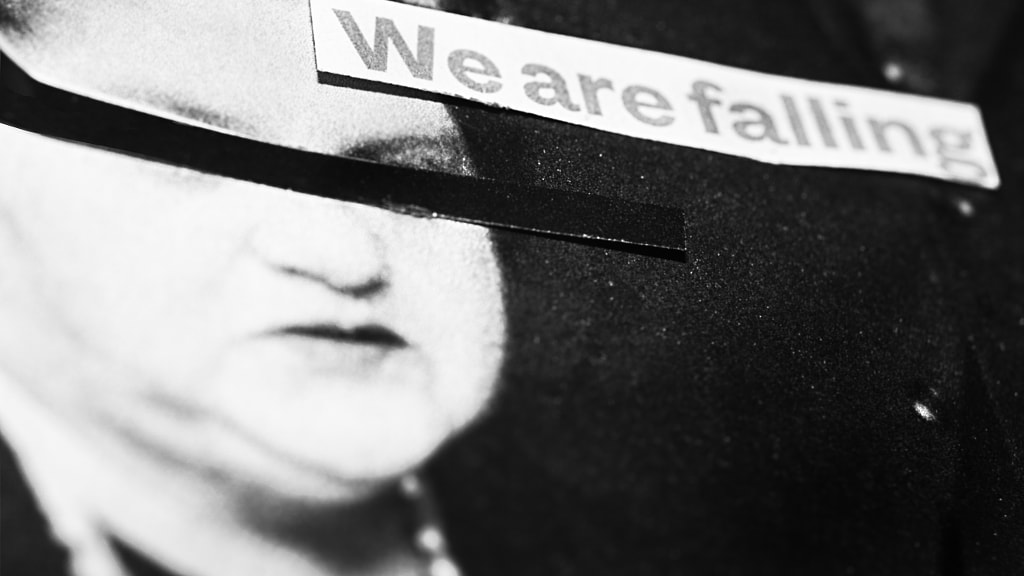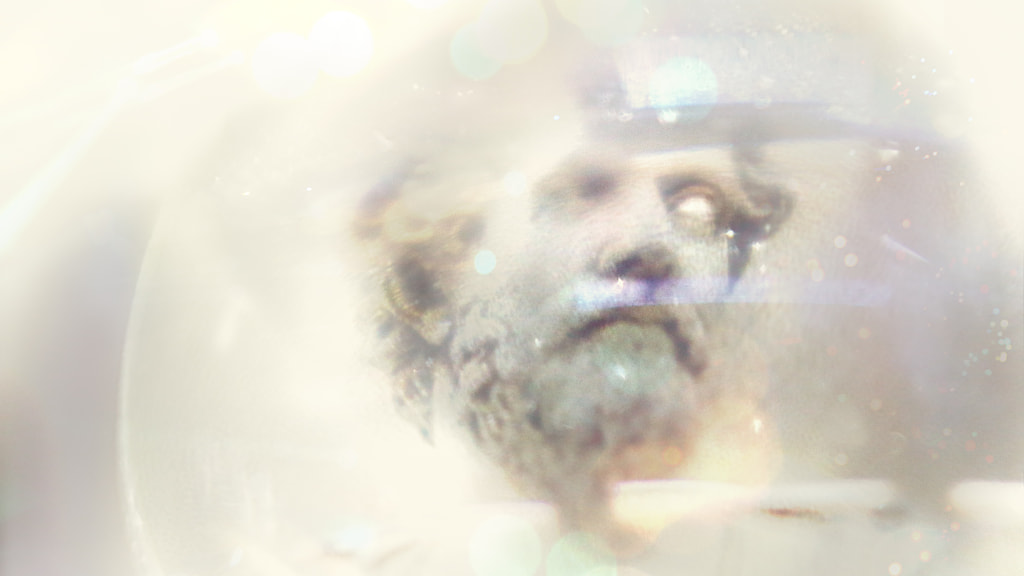There is a story told of the Reformer, Martin Luther – that when
asked what he would do if he knew the world would end tomorrow, he responded
that he would plant a tree. The story is apocryphal, a liturgical legend – and doesn’t
go back any further than the middle of the 20th century. But still,
there is something interesting in that story. Faced with the prospect of
calamity and destruction, with ruin and despair, Martin Luther (or at least,
this pious story version of Martin Luther) chose to plant a tree. That is, he
took the long view, even when the future might seem bleak; he planned and
planted something enduring, something that would grow.
A few years ago a friend of mine living in Michigan called me one afternoon
with bad news. His life, his career, his hope, all of it was collapsing. His
wife was leaving him. He was soon to lose his job. And there was little that he
could do about it. And there was even less that I could do about it for him. I
had no influence over anything. I couldn’t fix the broken things. I couldn’t restore
the dying things. And he lived too far away for me to hop in the car and go
over for a visit – and even if I had made the drive across the country to see
him, the best that I could have done would have been to sit in stupid silence
with and for him.
My schedule for that dark day included helping another friend of mine, one who
lived here in town. He needed help transplanting a small magnolia tree. The
tree was going to be cut down by developers who were clearing a lot in order to
put up a new building, and my friend wanted to try to save the tree. I changed
out of my Salvation Army uniform, and drove over to his place to meet him.
Together we dug up the tree with its roots, loaded the tree, along with our shovels
and gallons and gallons of water into the back of the pickup truck, and moved
the tree to its new spot, right near his garden.
We dug a new hole for it, put it in place, poured water over
the roots, replaced the dirt, poured more water into the soil around the tree,
tamped down the dirt, and poured more water over it all. At the time we weren’t
sure if the tree would survive. Neither of us had any experience in digging up
and transplanting trees. But, we reasoned, if it didn’t survive, well at least
we tried. And if it did survive, then we’d have done something good. Faced with
destruction and ruination, despair and helplessness, I planted a tree.
That was a few years ago – and the magnolia tree has survived. I went to check
on it yesterday, and it has been growing; it’s taller now than it was. It
was in bloom yesterday, with purple, pink blossoms reaching up towards the
falling rain. And my friend from Michigan has survived too, though like the
tree, he has been transplanted to a new home; he now lives in another state and
has a new job. His marriage did fall apart, and his wife did leave taking their
children with her. My friend misses his boys tremendously, but he has survived,
and grown. Bloomed even.
Is he happy? Blessed, Fortunate? I don't know. These are difficult words to pin
down, especially when the world around us is cluttered with chaos, when our
lives are bombarded from without and inflamed from within by stress and anxiety
and agitation. How can we be (even if we don’t
feel) blessed, fortunate, and happy?
So this week we turn to the Psalmist for a bit of an Old Testament Beatitude
for a little about what it might mean to be blessed, or fortunate, or lucky, or
even happy.
How Blessed is the one who does not walk in step with the wicked or stand in
the way that sinners take or sit in the company of mockers (Psalm 1:1 NIV)
How blessed – that is, fortunate, lucky, happy – How blessed, how happy is the
one who does not walk with the wicked, or stood in the assembly of sinners, or
sat down in the session of scoffers.
There is an interesting bit of entropy in
this verse, a steady decline in power and vigor. The psalmist's negative example
decelerates from walking to standing and then from standing to sitting. Little
by little he loses energy and vitality, he loses his strength. She associates
with those who bring her down.
But blessed is the one who keeps moving. Blessed is the one who keeps on
keeping on. Blessed is he or she who makes some progress every day, even just a
little. Even just one step. Blessed, Fortunate, Happy is the one who never lets
the counsel of the wicked slow them down. If we allow the world to encourage us
to be angry, to hate our enemies, to turn our passion into resentment, to turn
our fear into loathing, our energies will be sapped. We will lose our power,
our motion. We will get bogged down by the ensnaring concerns, drained by fear
and anger and we will give up. We will sit down with the scoffers, slowly dying.
But blessed, fortunate, happy is the one who keeps moving. Blessed is the one
who is not paralyzed by fear and doubt, or immobilized by resentment. Instead,
the law of the L
ORD is
her delight. The teaching and instruction of the L
ORD is his delight. And they meditate on it day and
night. They recite it. They ponder it.
Now we should note that the Hebrew word translated “law” here is the word
torah which is something more than a
legal list of rules and obligations. The psalmist’s beatitude is not saying
that happiness can be reduced to a mechanical process of following a set of
rules and regulations. Instead it is a dynamic process that requires a constant
meditation on the instruction of God in order to determine the will of God in
every situation.
(McCann) It is the
continual transformation and renewal of our minds so that we can discern what
is the will of God, what is good, and acceptable, and perfect (Romans 12:2
NRSV).
Such a one is like a tree planted near streams;
it bears fruit in season
and its leaves never wither,
and every project succeeds. (Psalm 1:2 – New Jerusalem Bible)
Actually the verb here is more than “planted.” More accurately it would be “transplanted”
(Dahood, 3). They have been dug up from the soil, pulled up from the roots and
moved to a new location, put into new soil, near streams of water where they
can grow anew – like my friend’s magnolia tree transplanted, but still blooming,
and like my friend whose world came to an end but he kept on going. They bear
fruit in season. Maybe not right away. Maybe not a lot at first. But they bear
fruit. How blessed, how fortunate, how happy.
There’s also an interesting temporal dimension to these verses that’s not always
picked up by the various translations of the bible. In Mitchel Dahood’s
translation we read:
How blest is the man who has not entered
the council of the wicked
nor in the assembly of sinners stood,
nor in the session of
scoffers sat.
But from the Law of Yahweh is his delight,
and from his law he
recites day and night.
So shall he be like a tree
transplanted near streams
of water;
which yields its fruit in its season,
and whose leaves never
wither.
Whatever it produces is good.
We in these verses we have the past (blessed is the one who has not entered,
stood, sat…), we have the present (the law of the LORD is his delight, he recites day and night), and we
have the future (so shall he be like a tree).
(Dahood, 3)
Yes, the past may have been difficult; we may have found ourselves surrounded
by hostile forces, lured by temptations, excited by passions. We may have been
tempted to give in, and give up. But we keep the law of the Lord in our minds,
and on our tongues, reciting it day and night, constantly refreshing ourselves
with it and renewing our minds by it, and we will be like a blossoming tree,
bearing the fruit of success. How blessed, how fortunate, how happy.
And now our psalmist changes tack: Not so, he says, the wicked. How different
are the wicked, how very different. They are like chaff blown around by the
wind” (Psalm 1: 4 New Jerusalem Bible). They are impermanent, ephemeral,
without roots, useless, drifting, always changing their story, telling new
lies. They are blown by the inconstant winds here and there, never amounting to
anything. They are all desperation and no dreams. All vanity and vainglory. All
dust in the wind.
The path of the wicked is doomed; it is a dead end. It is death and nothing
more. The wicked are dust and detritus caught in a current of wind. They cannot
stand in the face of judgment. They have no root, no depth. They will not
endure. They will not prevail.
But the blessed one, the fortunate and happy one, is intimately known by God,
is looked over and protected by God. The assembly of the just is kept safe by
the LORD. Our lives,
cluttered as they are with chaos, bombarded from without and inflamed within by
anxiety and fear are known by God, and are protected. We are fortunate, and
blessed, even happy. Thanks be to God.
Dahood, Mitchell, Psalms 1 – 50: Introduction, Translation,
and Notes. Garden City, New York: Doubleday & Company, Inc. 1966. Text.


































